Manon Knoertzer
Seagull: An Infrastructure for Load Prediction and Optimized Resource Allocation
Oct 16, 2020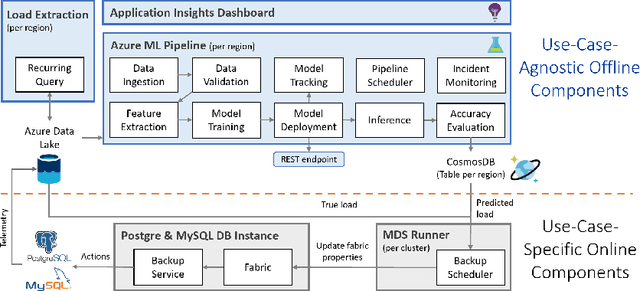
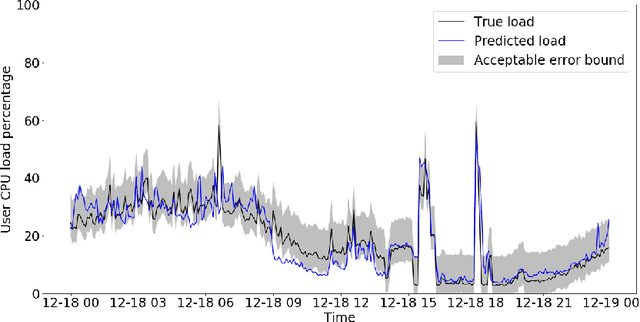
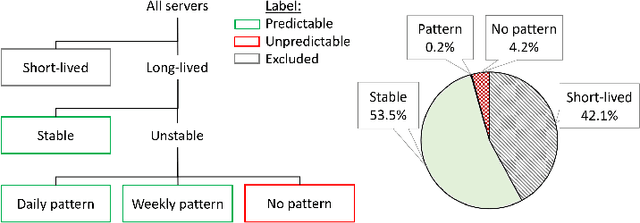
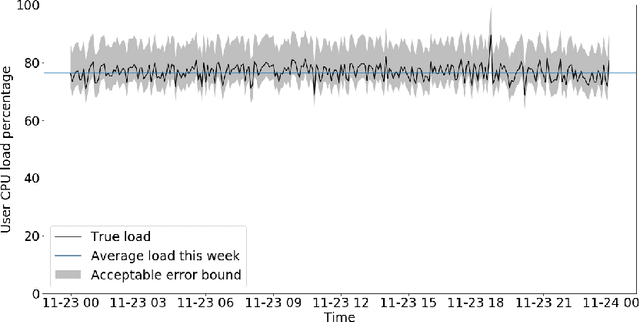
Abstract:Microsoft Azure is dedicated to guarantee high quality of service to its customers, in particular, during periods of high customer activity, while controlling cost. We employ a Data Science (DS) driven solution to predict user load and leverage these predictions to optimize resource allocation. To this end, we built the Seagull infrastructure that processes per-server telemetry, validates the data, trains and deploys ML models. The models are used to predict customer load per server (24h into the future), and optimize service operations. Seagull continually re-evaluates accuracy of predictions, fallback to previously known good models and triggers alerts as appropriate. We deployed this infrastructure in production for PostgreSQL and MySQL servers across all Azure regions, and applied it to the problem of scheduling server backups during low-load time. This minimizes interference with user-induced load and improves customer experience.
Examination and Extension of Strategies for Improving Personalized Language Modeling via Interpolation
Jun 09, 2020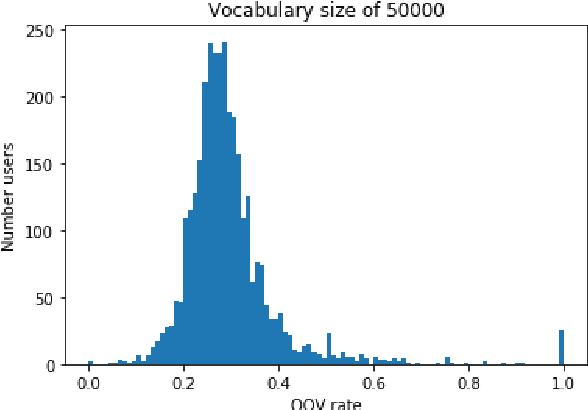
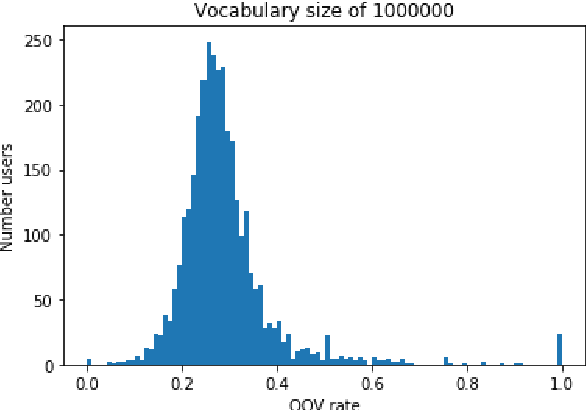

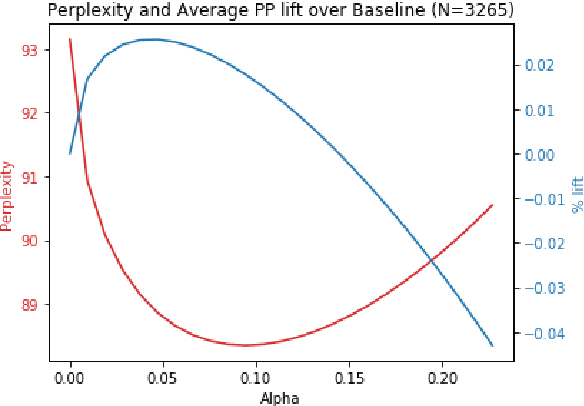
Abstract:In this paper, we detail novel strategies for interpolating personalized language models and methods to handle out-of-vocabulary (OOV) tokens to improve personalized language models. Using publicly available data from Reddit, we demonstrate improvements in offline metrics at the user level by interpolating a global LSTM-based authoring model with a user-personalized n-gram model. By optimizing this approach with a back-off to uniform OOV penalty and the interpolation coefficient, we observe that over 80% of users receive a lift in perplexity, with an average of 5.2% in perplexity lift per user. In doing this research we extend previous work in building NLIs and improve the robustness of metrics for downstream tasks.
 Add to Chrome
Add to Chrome Add to Firefox
Add to Firefox Add to Edge
Add to Edge